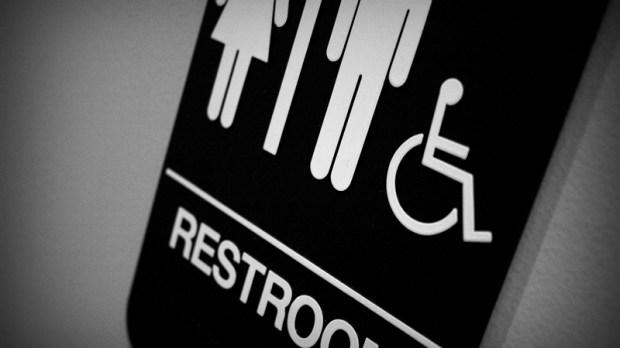I was scrolling through my Facebook feed and this meme caught my eye. The heading was simple, yet poignant: “Disabled people in the U.S.: 19%. Transgender people in the U.S.: 0.3%. This is the bathroom issue I am more concerned about.” We tend to latch on to heated topics based on emotive, rather than rational, thinking, but as a mom of two girls with special needs, this one hit me hard.
I paused to consider all of the parents we’ve met or encountered at the children’s hospital, in waiting rooms, and on recovery units, many of whom have extensive medical equipment. They have, for years or possibly decades, patiently dealt with the lack of accommodations in public restrooms – without an outcry, without complaint.
It would be dishonest to suggest that nothing has been done, no restroom facility adjustments have been made for the handicapped, but it would be equally dishonest to say that what has been put in place is “enough.” While the ADA generally states that facilities for the handicapped must provide “alterations to the path of travel or to the bathrooms” (Section 227), there is no mention of altering the actual amenities to using the toilet itself. In other words, every public restroom must provide wheelchair-accessible pathways to the toilets, but otherwise there are no additional accommodations that would be helpful for both caregivers assisting someone with a disability and the disabled person him/herself.
For those who need to heft an older child or adult onto the toilet, wouldn’t it be logical to add a lifting device in the handicap stall for ease? Some people need adult diapers to be changed in a restroom. In those cases, it seems that – for the sake of privacy and consideration – it would be great to allow a specific room with a motorized changing table that can be lowered or raised, based on if/where/how a disabled person stands.
That sounds like a lot, I know, for a very small percent of the population, even perhaps of the handicapped population. But if every person’s restroom comfort and accommodation is the cause of our time, then it only seems “right and just” that every possibility be taken into account, right now, at this time.
People with disabilities understand suffering at a depth most of us cannot imagine. They carry the cross in visible and sometimes hidden ways, and this is a point that transgender people and those who advocate for them should certainly appreciate. The dignity of handicapped people is as important as anyone’s to ensure. Their need to feel seen, accommodated and unembarrassed by their bathroom requirement is as important as anyone’s to address.
Pope Francis speaks of a “heart language” – the place of person-to-person encounter that is missing from our modern society. We celebrate alternatives to traditional ideas of beauty, and even of love, and yet that all seems to stop at the line where the handicapped form.
It’s unfortunate that most of us never take the time, or the opportunity, to encounter the heart of every person God has placed before us, and in our lives and homes, but that is the simple reality of life, and it is the reality of media, as well. An urban media outlet in a dense population will be more attuned to the transgender narrative than will, perhaps, an outlet in rural Kansas, but both would have acquaintance with handicapped persons and families trying to help them. Why is one accommodation story deemed so much more urgent than another? Is there a glamour factor, or an issue of political economy, that exists within the transgender story (and is assuredly absent from the handicapped story) that suggests a warranted priority?
I’m not suggesting that we ignore the plight of the marginalized, whoever they may be in this world. Call me a dreamer, but I’m saying we need to get behind the person rather than the general issue. The world is in dire need of mercy, and mercy begins when we meet a person face-to-face. My daughters aren’t confined to wheelchairs or hooked up to cords and IVs, but I know plenty of people, young and old, who are. As American lifespans increase, we will all know more of them. Do we regard the ways we could possibly make life a bit more bearable for people, not out of pity or superiority, but out of a genuine longing to love them and do our best by them?
If there are people walking the earth who are not suffering in some way, God bless them. Most of us carry a cross and for some it is known only to them and God; for some it is lifelong. We must reach out to each other and be the ear that listens and heart that understands. Only in this way will we recognize the absurdity of bathroom wars and arbitrary laws, and begin to work on real solutions – right and just, for all people — based on authentic encounter.

